
The placement of clinical pharmacists at the nexus of functional pharmacogenomics and in specialty pharmacy care makes good sense.

The placement of clinical pharmacists at the nexus of functional pharmacogenomics and in specialty pharmacy care makes good sense.
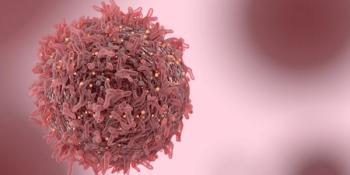
The anti-cancer medicine venetoclax may improve the current therapy for estrogen receptor-positive (ER+) breast cancer.

Ripretinib is indicated for adult patients who have received prior treatment with 3 or more kinase inhibitor therapies, including imatinib, according to an FDA press release.

The NASP Challenge is an unique opportunity to identify innovative ideas and creative solutions focused on enhancing the specialty pharmacy patient jouney.

Jonathan Ogurchak, PharmD, CSP, discusses the improtance of combining technology with the personal touch in specialty pharmacy.

The results will help the rare disease community shed light on the needs of people with rare diseases during the COVID-19 pandemic and other potential health crises, in addition to informing future research efforts.

At the PQA 2020 Annual Meeting on Thursday, speakers discussed some of the drivers of medication adherence in community pharmacy.

Survey finds that nearly two-thirds of specialty pharmacists spend more than 15 minutes on the phone to fill 1 prescription, whereas 79% of specialty pharmacists seek additional information from clinicians at least 3 times in an average day.

Although the average wholesale price of the agents is more than $13,000, the investigators found that 9% of patients had a 0% co-pay throughout the 6-month period.

Ovarian cancer is the fifth most common cause of death from cancer among women in the United States, according to a press release.

Gregory Leighton, RPh, vice president of clinical solutions and patient access for Asembia, discusses how patient support services and hub providers can be used to focus on an individual’s needs and lifestyle for improving medication adherence.
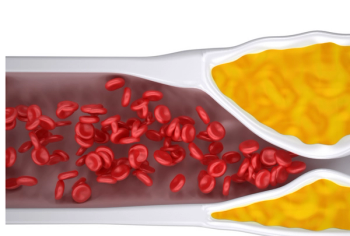
Evolocumab, when used with diet, can be used as monotherapy or in combination with other lipid-lowering agents for the prevention of cardiovascular events.

This new study showed for the first time that an enzyme, known as fatty acid synthase (FASN), specifically may be responsible for causing cognitive deficits.
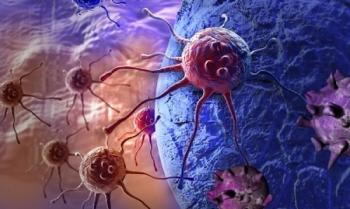
Sacituzumab govitecan-hziy, approved by the FDA on April 22, 2020, is the first in its class to treat metastatic, triple-negative breast cancer in patients who have received at least 2 prior therapies for metastatic disease.

More than 25% of US patients have not filled a prescription or have reduced their prescribed dose because of high costs.

Selpercatinib is the first therapy approved specifically for cancer patients with rearranged during transfection (RET) gene alterations.

In outpatient breast cancer clinics, oral chemotherapies are becoming more common for various malignancies, but hematologic and non-hematologic toxicities can cause challenges for patients.

Oral oncolytics has become increasingly common as treatment for patients with cancer over the past several years.

According to the investigators, the cells are called ductal macrophages and function by consuming dying milk-producing cells, which need to be cleared away after milk production stops.

The objective of the study was to develop an education program that increased confidence and knowledge of pharmacists managing CDK4/6 inhibitors.

Christian G. Downs, JD, MHA, executive director of the Association of Community Cancer Centers, discusses cancer politics and policy today.

Non-small cell lung cancer is a the most common type of lung cancer with up to 90% of all lung carcinomas falling into the non-small cell category.

"Approximately 40% of melanomas are considered to be ‘cold,’ meaning that they lack sufficient infiltration of immune cells within the tumor."

Thom Cohn, chief strategy officer, Asembia, discusses the impact of emerging digital tools and other therapies on patients and prescribers.
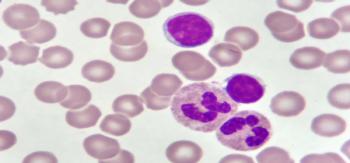
A majority of the patients who responded maintained their response for at least 1 year.

PTCE will offer 15 virtual CE sessions throughout May.
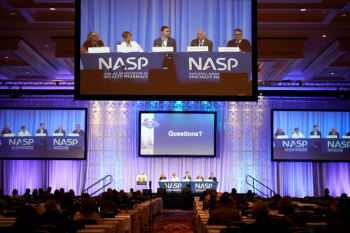
Former interim chair of the Democratic National Committee Donna Brazile and former chairman of the Republican National Committee Michael Steele will give a joint keynote presentation on the current and future political landscape.

In a new study, researchers analyzed data on cancer survivors' experiences with financial toxicity and found that survivors have unmet needs in its management.

The drug is co-formulated with recombinant human hyaluronidase PH20 and will be available as soon as the week of May 11.

In the oral chemotherapy setting, pharmacist care exceeded patients’ expectations and helped manage and avoid adverse events (AEs).